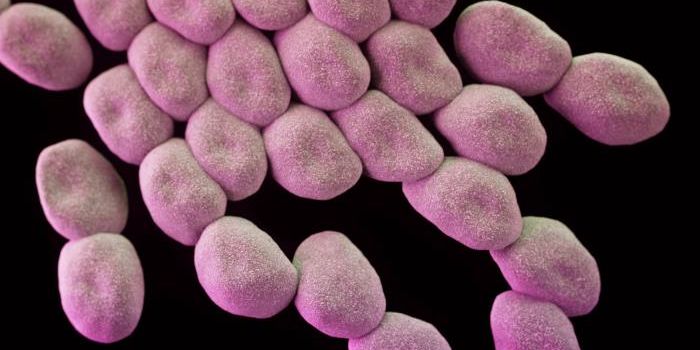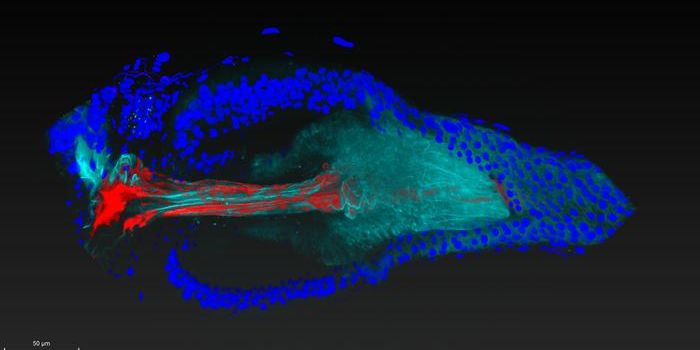How a Parasite Manipulates a Host's Defenses to Stay Alive
Sand flies transmit over 20 species of infectious Leishmania parasites, which infect host macrophages and other immune cells. Various factors can have an influence on whether or not infections are asymptomatic. Various forms of leishmaniasis can occur and lead to a wide variety of symptoms, such as sores. Leishmania parasites are known as 'master manipulators' of their hosts, and they have many different ways to evade the host immune response and promote parasite survival after infection.
When infection occurs, it triggers an excessive inflammatory response that can have many negative effects. Scientists have now shown how Leishmania parasites take advantage of a host protein called gasdermin-D in order to replicate and cause disease. The findings have been reported in Nature Communications.
Gasdermin-D is generated by macrophages and other innate immune cells. The protein activates an inflammatory cascade that is needed to battle infectious pathogens like bacteria and parasites.
"Gasdermin-D is important to activation of the inflammasome, a complex of proteins involved in the organism's defense against infection. We observed activation of the inflammasome in biopsies from patients with [cutaneous and mucocutaneous forms of leishmaniasis]," said first study author Keyla de Sá, PhD.
The researchers used a mouse model and cells in culture that were infected with Leishmania parasites to show that gasdermin-D activation was not strong enough to cause the cell death that is required to fight the parasite. Therefore, the inflammation persisted, de Sá explained. This inflammation is what leads to the sores that can be caused by the disease. Depending on where they occur, these can be debilitating.
The parasite alters a process in which the gasdermin-D protein is cleaved, so the structure of the protein is changed and it is unable to perform its functions. Normally, macrophage proteins cleave gasdermin-D, which activates a structure called the NLRP3 inflammasone, which leads to cell death and prevents the pathogen from replicating more.
"It's very interesting to see how this parasite modulates the functions of macrophages... The process enables Leishmania to remain in mammalian hosts for years, sometimes for the entire lifetime of an infected individual," said senior study author Dario Zamboni.
The NLRP3 inflammasome is crucial to triggering the defensive inflammatory responses that battle different types of infections. The dysregulation of the inflammasome has been linked to inflammatory disorders.
There is an existing drug that could inhibit the activation of the NLRP3 inflammasome, which could potentially help severe COVID-19 patients. Now this drug or one like it could be tested for treating severe tegumental leishmaniasis, in which there is excessive inflammation. "However, caution is necessary because in less severe cases the inflammatory process triggered by the inflammasome can be important to control the disease," Zamboni explained.
Sources: FAPESP, Nature Communications









